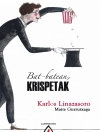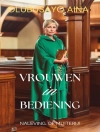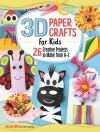In Charles Dickens’ renowned work, ‘A Christmas Carol (Unabridged and Fully Illustrated), ‘ readers are transported to the bleak, wintry streets of Victorian London, where the miserly Ebenezer Scrooge is visited by the ghosts of Christmas Past, Present, and Yet to Come. Through Scrooge’s transformative journey, Dickens highlights the importance of compassion and the true spirit of Christmas. The vivid descriptions and vivid characters make this novella a classic of English literature, blending elements of gothic fiction and social commentary. The book’s enduring popularity is a testament to Dickens’ ability to engage readers with both heartwarming storytelling and profound themes of redemption and hope. Dickens’ timeless tale continues to resonate with audiences of all ages, reminding us of the power of generosity and gratitude during the holiday season and beyond.
Over de auteur
Charles Dickens (1812–1870), the much-celebrated English novelist and social critic, is esteemed as one of the foremost figures of Victorian literature. His works are distinguished by their poignant social commentary, a vivid gallery of characters, and a narrative style replete with sharp wit and inventiveness. Dickens began his literary career as a journalist, transitioning to serialized novels that captivated the Victorian public with their accessible instalments. His literary oeuvre includes classics such as ‘David Copperfield’, ‘Great Expectations’, ‘Oliver Twist’, and ‘Bleak House’, to name but a few. The referenced work, ‘A Christmas Carol (Unabridged and Fully Illustrated)’, remains an eternal classic. In this novella, Dickens harnesses the plight of the poor and the redemptive potential of human nature, encapsulated in the transformation of protagonist Ebenezer Scrooge from miser to benefactor. His writing here, as elsewhere, seamlessly blends grim social realism with threads of the fantastical, embodying the author’s abiding concern with moral and societal reform. His literary legacy continues to resonate, with his works adapted in numerous mediums, testament to Dickens’s masterful storytelling and his enduring moral vision.








